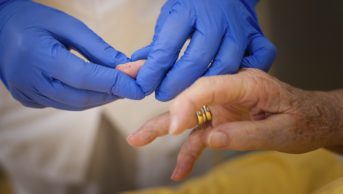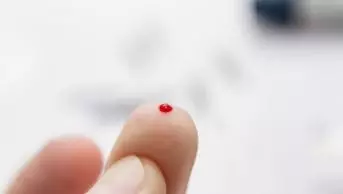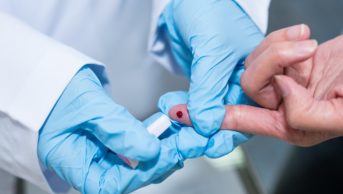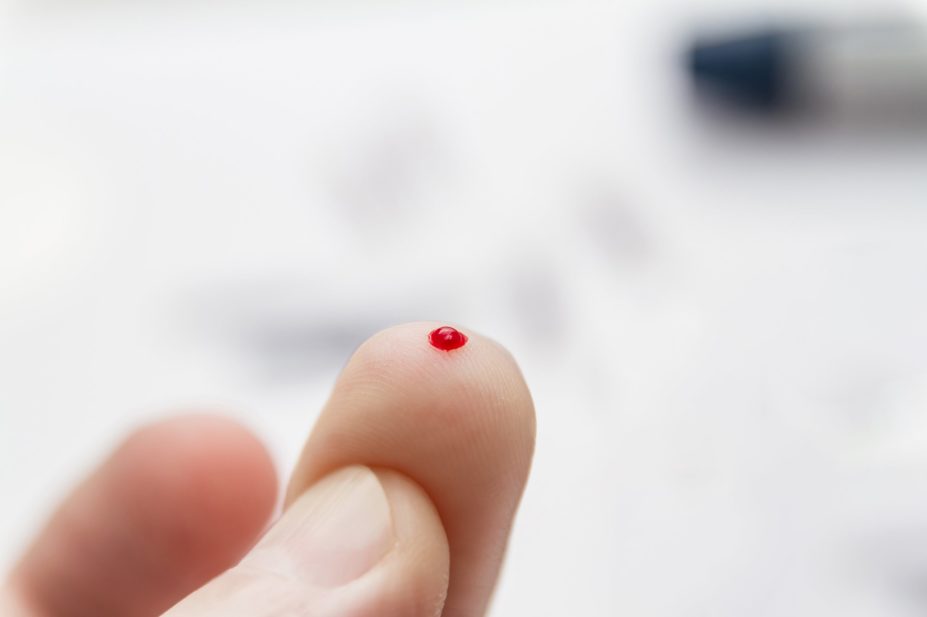
Shutterstock.com
Open access article
The Royal Pharmaceutical Society has made this article free to access in order to help healthcare professionals stay informed about an issue of national importance.
To learn more about coronavirus, please visit: https://www.rpharms.com/resources/pharmacy-guides/wuhan-novel-coronavirus
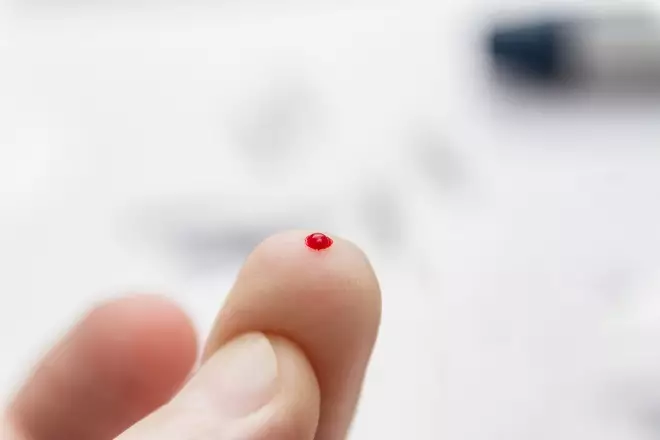
Source: Shutterstock.com
The test, manufactured by Biopanda Reagents, can only be performed and evaluated by a healthcare professional, such as a pharmacist
Almost 500 pharmacies across the UK are now offering a rapid finger-prick COVID-19 antibody testing service
.
The test, manufactured in the UK by Biopanda Reagents, is a rapid point-of-care (POC) test designed to detect immunoglobulin (Ig) M (96.7% specificity) and IgG (98.3% specificity) as markers of past COVID-19 infection.
Pharmadoctor, which supplies the test kits and service support to pharmacies, said the test was CE-certified by the manufacturer, and authorised for sale in the UK for healthcare professional use by the Medicines and Healthcare products Regulatory Agency (MHRA) on 5 March 2020.
This means the test can only be performed and evaluated by a healthcare professional, such as a pharmacist or pharmacy technician, and cannot be sold directly to the public for them to carry out the test at home.
“Pharmacies taking part in the service do not sell the test directly to the public,” Graham Thoms, chief executive of Pharmadoctor, said.
“The test is carried out by a pharmacist who is clearly stating to patients that it is not an indication of immunity or diagnosis of disease. People have made it clear they value the option to be tested by [a healthcare provider] in their community.”
According to the company, more than 470 pharmacies are now offering the service across the UK. The pharmacy chain Weldricks Pharmacy, based in South Yorkshire and North Lincolnshire, said that 19 of its pharmacies offer the testing service.
In May 2020, Superdrug offered a CE-marked COVID-19 antibody test to the public for £69 through its online store. The test was advertised as one where patients could use a lancet to take finger-prick blood which would then be sent to a lab for testing using materials manufactured by Abbott.
However, a day after the test was listed for sale, Abbott said in a statement that the test was “not intended for home use” and should not be used with finger-prick blood. In response to the concerns raised by the manufacturer, the MHRA said it had contacted “providers of the antibody testing service and the laboratories running these tests”, asking them to temporarily stop offering the tests “until the regulatory and safety concerns have been resolved”.
In May 2020, the MHRA published a ‘target product profile’, setting out the “intended use, target populations and other desired attributes” of COVID-19 antibody tests. The document cited pharmacies as a “target use setting” for antibody tests.
The Department for Health and Social Care, Public Health England (PHE) and MHRA has begun recruiting 2,500 volunteers from the NHS and wider public services to evaluate finger-prick COVID-19 antibody tests that can be taken at home. The study, which is expected to have results by late summer 2020, will look at both how effective these tests are and how easy they are to use.
Kevin Ferneyhough, corporate communications lead at Well Pharmacy, said his company “strongly believed” that community pharmacies should have the opportunity to offer COVID-19 antibody testing. However, he added that Well was currently following guidance from the General Pharmaceutical Council and PHE that, he said, both advise against the use of rapid POC tests as there is limited evidence of their accuracy.
He continued that Well had highlighted its concerns that community pharmacy was “in effect being excluded from participating in providing this service”.
However, Thoms noted: “Contrary to misinformation out there, it is not the job of the government, PHE or any other organisation to assess or approve tests for [healthcare provider] use (unless they are to be used in a government testing service).”
Pharmadoctor said Biopanda Reagents had submitted requests for its test to be evaluated by PHE but, to date, PHE had not evaluated the test and not asked for the test to be submitted for evaluation.
